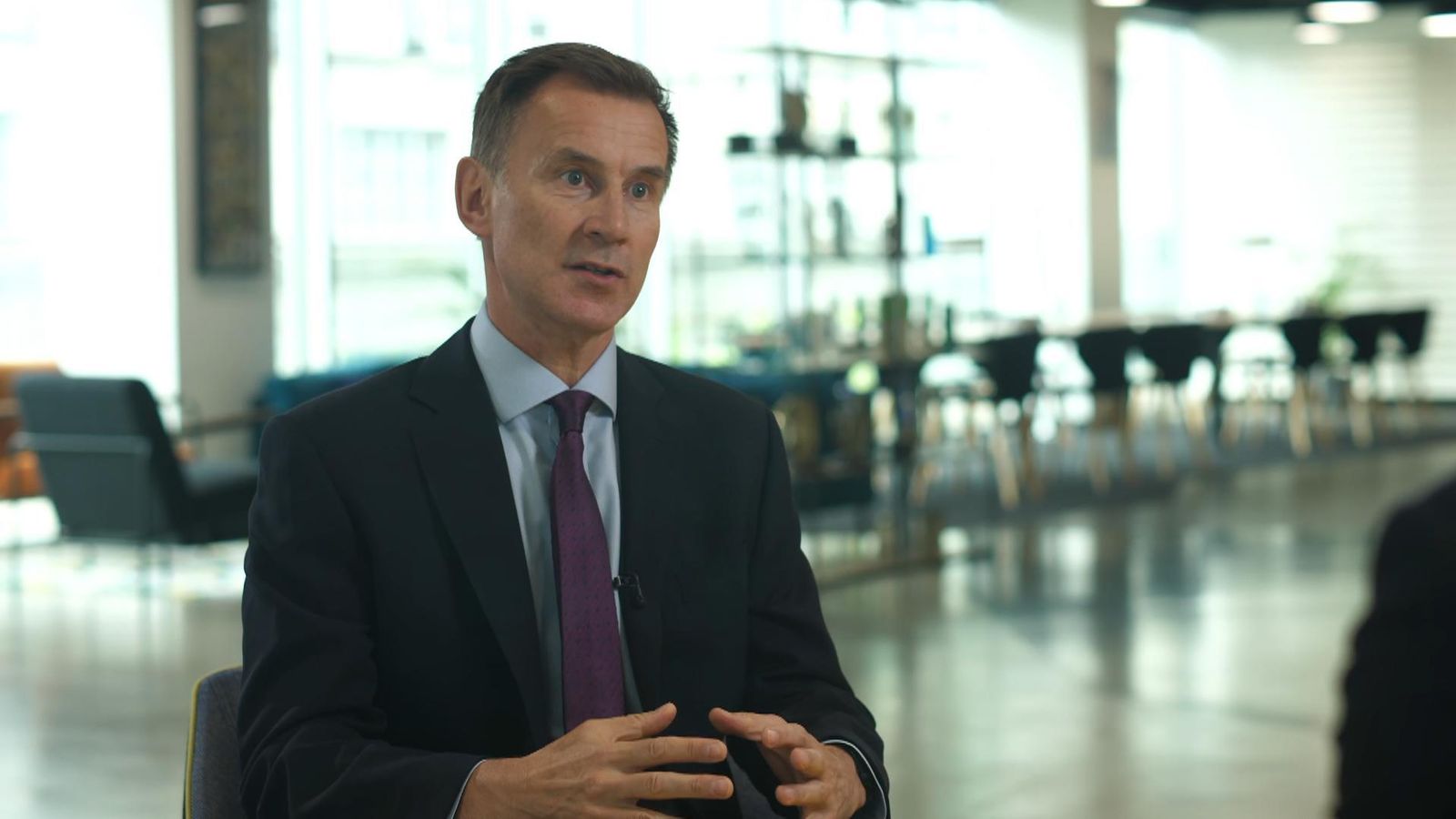Chancellor Jeremy Hunt has said banks face “very large” fines if they close customers’ accounts because of their political opinions.
His warning comes in the wake of the row surrounding former UKIP and Brexit Party leader Nigel Farage, who accused Coutts of unfairly shutting his accounts because it did not agree with his views.
Speaking following the Bank of England’s decision to hike interest rates to 5.25% on Thursday, Mr Hunt said he had written to regulator the Financial Conduct Authority (FCA) to look into the issue of “so-called de-banking”.
He told Sky News: “I’m worried that it may exist more than we had thought.
“And the reason I’m worried is because free speech is a fundamental human right, and you can agree or disagree with Nigel Farage, but everyone wants to be able to express their opinions.”
Mr Hunt said regulations already exist that ban banks from closing accounts due to someone’s political views.
But he revealed the FCA had promised to carry out a review into the issue and report back to him by September.
The chancellor added: “They have the right to fine banks very large sums of money if they find this practice is widespread. I want to know if it is and I want to know what they’re doing about it.”
Mr Farage later responded on X, formally known as Twitter, writing: “The chancellor has written to the FCA about my case and the issue of de-banking. Thank you @Jeremy_Hunt”.
It comes after City Minister Andrew Griffith also promised a crackdown on “de-banking”, while the Treasury also unveiled reforms designed to force banks to be more transparent about account closures.
Earlier this week Mr Farage revealed that Coutts had offered to reinstate his personal and business accounts, but said he would still campaign on the issue and wanted compensation for what had happened to him.
Read more from business:
Wilko: 12,000 jobs at risk as UK retail chain on brink of collapse
Analysis: Bank of England hints economic pain to be a drawn-out affair
Next beats forecasts again as profits to be £10m higher than expected
Please use Chrome browser for a more accessible video player
NatWest, which owns Coutts, previously apologised to Mr Farage and ordered an independent review.
Coutts boss Peter Flavel resigned, as did NatWest chief executive Dame Alison Rose after she admitted being the source behind an incorrect BBC story about the row.
It came after Mr Farage obtained a 40-page dossier from Coutts which suggested the closure of his accounts was taken partly because his views did not align with its “values”, including his position on LGBTQ+ rights and friendship with former US president Donald Trump.
The controversy has led to a wider debate on bank account closures and thrown similar complaints into the spotlight.
The Muslim Council of Britain recently wrote to political leaders saying the withdrawal of banking services by a variety of different high street chains was “par for the course” for many Muslims and Islamic organisations in the UK.
Its secretary general, Zara Mohammed, called for an investigation and said: “The practice has continued unhindered, with limited transparency… little to no recourse for those impacted and no action taken by successive governments to address any of the aforementioned.”
Be the first to get Breaking News
Install the Sky News app for free
Businesswoman and aspiring MP Gina Miller also criticised the banking sector after Monzo Bank closed an account belonging to her True and Fair Party.
The bank later confirmed it did not allow political party accounts and said the initial decision to allow her to open one had been made in error.












